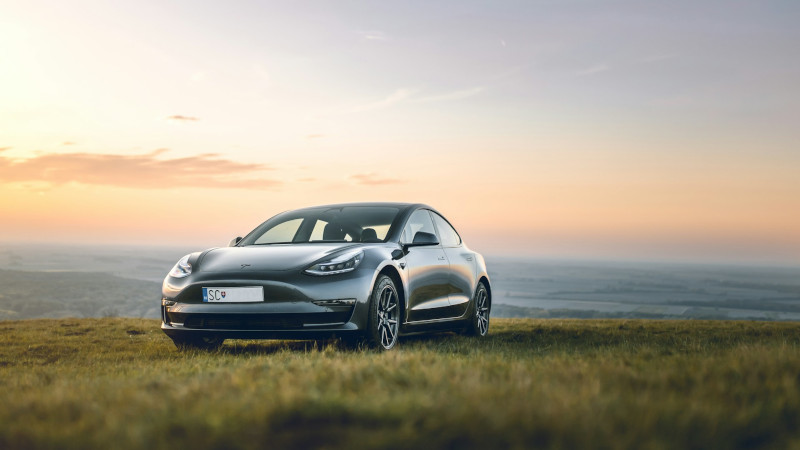Last Updated on May 16, 2025
There’s always that moment when you’re buying something major and at the back of your mind you’re wondering, “Is this the right choice?” With electric vehicles, the answer to that question is becoming a resounding YES!
So, why should you consider an EV for your next vehicle?
Well, there’s the driving experience. It’s quieter, cleaner, and efficient, leaving ample time to ponder existence. (Like, wtf do birds do all day!?)
There are numerous environmental benefits to EVs. According to the Environmental Protection Agency (EPA), a typical EV can slash about 4.6 metric tons of CO2 emissions annually compared to a gasoline vehicle. Don’t even get me started on better air quality in cities.
But, wait, there’s more, a LOT more. Let’s unpack why EVs are no longer just a trend, but the very future of driving and why now is the perfect time to consider making the switch.
1. Dropping prices and attractive incentives

EVs are more accessible today thanks to falling prices and government incentives. Just a few years back, electric vehicles were considered pricey, niche, and premium options. However, the average price has fallen by nearly 20% making them more affordable to the regular buyer.
According to Kelly Blue Book’s May report, the average price of a new EV has dropped from $65,000 to $56,648 in about two years. That’s a 15% drop. Meanwhile, used EV prices have plunged from $40,783 to $28,767, representing a 42% decline from last year according to iSeeCars.
Thanks to EV battery tech advancements and increased competition among major vehicle manufacturers, you can now find EVs starting from as low as $27,000 for models like the Chevy Bolt and Nissan Leaf. Even Tesla’s popular Model 3 has seen price cuts, dipping below $40,000.
On top of lower prices, there are plenty of incentives to sweeten the “Consider-an-EV” deal. Federal tax credits in the U.S. offer up to $7,500 off qualifying new EVs, and some states also throw in additional rebates. For used EVs, buyers can snag a tax credit of up to $4,000. Additionally, programs like California’s Clean Vehicle Rebate Project (CVRP) provide added savings.
With dropping prices and attractive incentives, buying an EV today is more doable than ever – whether it’s your first electric ride or a budget-friendly upgrade.
2. Save on fuel and maintenance with an EV
One of the most compelling reasons to switch to an electric vehicle (EV) is the lower cost to fuel and maintain it compared to gasoline-powered cars. On average, charging an EV at home costs about $0.10 to $0.15 per kilowatt-hour (kWh). For a typical EV, this translates to roughly $500 per year in electricity costs, compared to over $1,200 annually for gas in a traditional vehicle.
Maintenance is also significantly more affordable with an EV.
Electric cars have fewer moving parts, meaning there’s less to wear out or break. You’ll never need to worry about oil changes, transmission issues, or exhaust system repairs. According to Consumer Reports, EV owners can save up to 50% on maintenance costs over the lifespan of their vehicles compared to gasoline cars.
These savings on both fuel and maintenance make EVs a more budget-friendly option, especially over the long term. With fewer visits to the mechanic and cheaper “fuel” costs, you’ll notice the difference in your wallet while driving cleaner, quieter, and smarter.
3. Environmental benefits: Drive cleaner, breathe easier
Worried about climate change and the environment? Switch to an electric vehicle. According to the National Renewable Energy Laboratory, an EV produces 50% less CO2 than the average gas-powered vehicle over its lifetime. Hybrids slash about 25% emissions.
EVs contribute to cleaner, healthier communities, particularly in urban areas where traffic emissions are a major source of smog and related respiratory issues.
But, wait, there’s more.
Charging your EV with renewable energy sources, like solar panels at home or plugging into a clean energy grid, multiplies your positive environmental impact. Powered by renewable energy, an EV can become almost carbon neutral. That means your driving has minimal contribution to climate change.
4. Range anxiety is becoming a thing of the past

For years, “range anxiety” – the fear that your EV will run out of juice before reaching a charging station – was a major concern for potential EV buyers. However, battery tech advances coupled with expanding charging infrastructure are making range anxiety a thing of the past.
How?
Modern EVs now come equipped with higher-capacity batteries. Models like the Tesla Model S and the Lucid Air can travel over 400 miles on a single charge, rivaling the range of many gasoline vehicles. Even more affordable options, like the Chevrolet Bolt or Hyundai Kona, deliver over 250 miles, far exceeding the average daily commute.
Charging technology has also dramatically improved. Fast-charging networks, such as Tesla’s Supercharger and Electrify America allow EVs to gain up to 80% charge in just 30 minutes. This makes long road trips far more practical, with charging stops no longer a major inconvenience. Additionally, developments in wireless charging could soon eliminate the need for physical cables, offering greater convenience for home, public, or on-the-road charging.
Growing EV charging infrastructure is also banishing range fears to oblivion. With over 140,000 charging stations across the U.S. and more coming online every day, you’ll soon find charging more convenient, making EVs a reliable choice for any journey.
5. Smooth driving experience
Driving an electric vehicle (EV) is an experience like no other. With instant torque and smooth acceleration, EVs deliver seamless power at the tap of the pedal. Whether you’re zipping through city streets or cruising down the highway, the quiet cabin and absence of engine vibrations create a peaceful, enjoyable drive.
But it’s not just about the ride—EVs are packed with high-tech features that take your driving experience to the next level. From advanced driver assistance systems to over-the-air software updates, you’re always driving the latest and greatest version of your car.
Plus, many EVs offer customizable settings, so you can tailor your drive to your exact preferences. Whether you’re a tech lover or just someone who enjoys a smoother ride, EVs can turn your journey into a joyride.
The bottom line
Switching to an EV is no longer just about helping the environment—it’s a smart financial and lifestyle decision. With lower costs, more convenience, and plenty of exciting features, your next car should definitely be electric.


